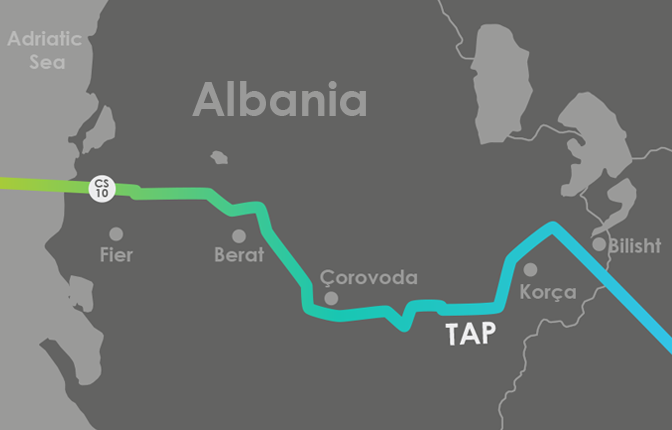Southern Gas Corridor: Despite the Cold Snap, 70 Percent of the Tap Pipes Are Lowered into the Alban
- Mariana Liakopoulou
- Mar 9, 2018
- 2 min read

The recent adverse winter conditions notwithstanding, nearly 70% of pipes of the Trans Adriatic Pipeline (TAP) in Albania have now been lowered in, the pipeline consortium announced last week on Twitter. The particular percentage represents 150km out of the 215km-long Albanian portion of TAP. Regardless of the cold spell that later spread across Europe, pipeline construction activities in the territory of Albania are being carried out as per schedule, the company confirmed. The building of TAP in Albania, the third and final state on its route, has so far been met with petty resistance, strengthening hopes of the timely completion of this last leg of the Southern Gas Corridor until 2020 (SGC).
Unlike Italy, where activists have repeatedly attempted to block work on the line in the region of Puglia, or Greece, where small-scale opposition from farmers in the country’s North has spurred a legal battle in the Council of State, Albania has been actively supporting its connection to the SGC through both TAP and the Ionian Adriatic Pipeline (IAP), the pipeline extension of TAP across the Western Balkans. In this context, the Albanian gas grid operator (Albgaz) pursues cooperation not only with European counterparts, like the Greek DESFA, but also with Azerbaijan, currently the only supplier to the SGC pipe network thanks to the second stage of its Shah Deniz field development (SD2). This is shown by the two agreements inked by Albgaz and the Azerbaijani state oil company SOCAR in the course of the Fourth Ministerial Meeting of the SGC Advisory Council, regarding the establishment of a company responsible for the implementation of IAP and a gasification project, set to reduce Tirana’s reliance on the environmentally unsound hydroelectric power.
It is hence made apparent that Albania will doggedly seek on the development and sustainable integration of its gas transmission system (GTS) with those of the rest of Europe. Furthermore, it clearly aspires to transform itself into an energy gateway for traditionally ill-supplied markets like Kosovo, Montenegro and Bosnia-Herzegovina. The open-ended dialogue with TAP AG, as well as direct energy partnerships with SOCAR, are thought to be helping in this direction, especially at a time when alignment with the EU energy acquis appears more necessary than ever in view of the Bloc’s prospective Western Balkan enlargement.
Available online at: http://www.caspianpolicy.org/energy/caspian-energy-insight-march-7-2018/#3



Comments